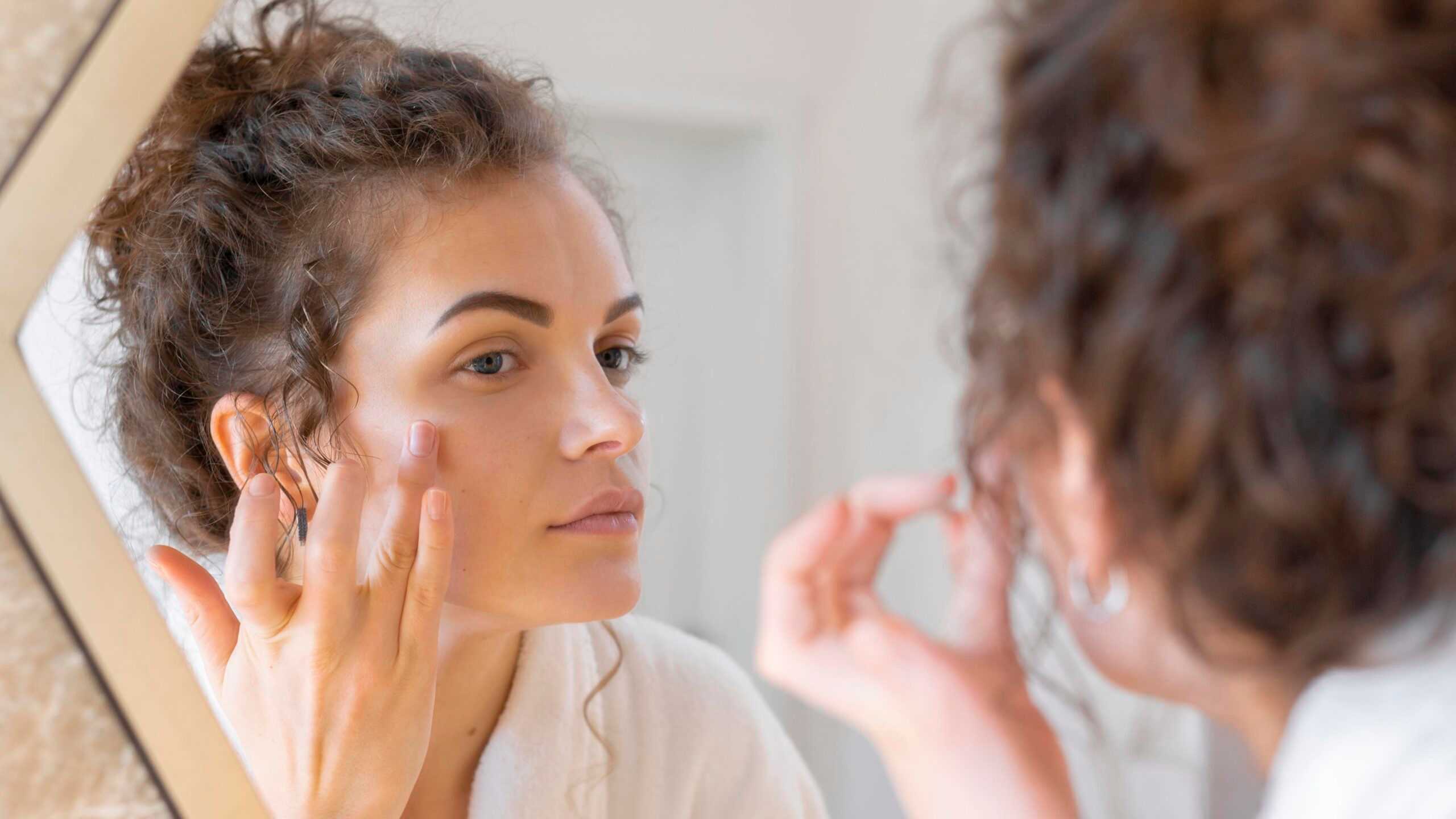
Skincare Mistakes That Cause Acne and How to Fix Them

Introduction
Acne is a widespread skin concern that affects individuals of all ages and genders. While many invest in skincare products, they often unknowingly make mistakes that contribute to breakouts. This blog will highlight common skincare errors that cause acne and provide expert-backed solutions to help you achieve clear, healthy skin.
Understanding Acne and Its Causes
Acne develops when oil and dead skin cells clog hair follicles, leading to pimples, blackheads, or whiteheads. It commonly appears on the face, forehead, chest, upper back, and shoulders. Though more prevalent during adolescence due to hormonal changes, acne can affect people of all ages.
Common Causes of Acne
Hormonal Changes: Increased androgen levels can cause excess sebum production, leading to breakouts.
Diet: High-glycemic foods, dairy, and sugar-rich diets may trigger acne.
Stress: Elevated cortisol levels can increase oil production, worsening acne.
Genetics: A family history of acne may increase your susceptibility.
Environmental Factors: Pollution, humidity, and poor air quality can clog pores and contribute to breakouts.
Top 5 Skincare Mistakes That Cause Acne & How to Fix Them

1. Using Dirty Linens
Why It Matters: Your pillowcase accumulates bacteria, dead skin cells, and oils that transfer back onto your skin, clogging pores and causing breakouts.
How to Fix It:
Change pillowcases at least twice a week.
Use hypoallergenic fabrics like cotton or silk.
Wash linens in hot water and avoid fabric softeners that leave pore-clogging residue.
2. Sleeping with Makeup On
Why It Matters: Makeup traps dirt and bacteria, leading to clogged pores and inflammation.
How to Fix It:
Use a gentle, non-comedogenic makeup remover.
Follow up with a double cleanse using a water-based cleanser.
Apply toner to balance skin pH and complete your nighttime routine.
3. Skipping Sunscreen
Why It Matters: Sun exposure can lead to hyperpigmentation, premature aging, and skin irritation, exacerbating acne.
How to Fix It:
Use an oil-free, non-comedogenic sunscreen with SPF 30+.
Apply sunscreen daily, even on cloudy days.
Reapply every two hours when outdoors.
4. Over-Exfoliating or Using Harsh Products
Why It Matters: Excessive exfoliation can damage the skin barrier, causing irritation and increased oil production.
How to Fix It:
Exfoliate 2-3 times a week with a gentle chemical exfoliant (AHAs or BHAs).
Avoid harsh scrubs that cause microtears.
Follow up with a hydrating moisturizer.
5. Picking or Squeezing Pimples
Why It Matters: Picking at acne spreads bacteria, increases inflammation, and leads to scarring.
How to Fix It:
Use spot treatments with benzoyl peroxide or salicylic acid.
Apply a warm compress to encourage natural healing.
Consult a dermatologist for persistent breakouts.
Additional Skincare Mistakes to Avoid

Using Makeup Wipes as Your Primary Cleanser
Why It’s a Problem:
They leave residue behind, clogging pores.
Contain harsh ingredients that can irritate sensitive skin.
Better Alternatives:
Use a double cleansing method (oil-based cleanser followed by a water-based cleanser).
Try micellar water with reusable cotton pads.
Skipping Moisturizer
Why It Matters:
Dehydrated skin overproduces oil, leading to more breakouts.
A compromised moisture barrier increases skin irritation.
How to Fix It:
Choose a lightweight, non-comedogenic moisturizer.
Look for hydrating ingredients like hyaluronic acid or glycerin.
Frequently Changing Skincare Products
Why It Matters:
Constant product switching confuses your skin and disrupts its natural balance.
How to Fix It:
Stick to a skincare routine for at least 4-6 weeks before evaluating effectiveness.
Ignoring Diet and Lifestyle Factors
Why It Matters:
Poor diet and lack of sleep contribute to hormonal imbalances that trigger acne.
How to Fix It:
Eat a balanced diet rich in whole grains, fruits, and vegetables.
Drink at least 2 liters of water daily.
Get 7-8 hours of quality sleep each night.
Clear Skin Tips for Acne Prevention

Choose Non-Comedogenic Products – Ensure skincare and makeup products don’t clog pores.
Keep Your Hands Off Your Face – Avoid transferring bacteria and oil to your skin.
Wash Pillowcases & Towels Regularly – Prevent bacterial buildup by changing linens frequently.
Stay Hydrated – Proper hydration maintains skin elasticity and prevents excess oil production.
Consider Professional Treatments – Consult a dermatologist for customized solutions, including chemical peels, laser therapy, or prescription treatments.
FAQs: Skincare Mistakes & Acne
Q: Can touching my face frequently cause acne? A: Yes, bacteria and oils from your hands can clog pores, leading to breakouts.
Q: Can using too many skincare products worsen acne? A: Yes, overuse of products can irritate skin and cause breakouts. Stick to a simple, effective routine.
Q: Is popping pimples a bad idea? A: Yes, it can lead to scars and further inflammation. Use spot treatments instead.
Q: How often should I exfoliate if I have acne-prone skin? A: 1-2 times a week with a gentle chemical exfoliant.
Q: Can not washing my face before bed cause acne? A: Yes, dirt and makeup buildup can clog pores. Always cleanse before bed.
Q: Do certain foods trigger acne? A: Yes, high-glycemic foods and dairy can contribute to breakouts in some individuals.
Q: Can the wrong moisturizer cause acne? A: Yes, heavy, oil-based moisturizers can clog pores. Use lightweight, oil-free options.
Q: Does not changing pillowcases regularly cause acne? A: Yes, pillowcases collect bacteria and oils that can lead to breakouts.
Q: Can using hot water to wash my face cause acne? A: Yes, hot water strips natural oils, triggering excess oil production.
Q: Should people with acne-prone skin use sunscreen? A: Absolutely! Choose a non-comedogenic sunscreen to protect against sun damage and irritation.
Conclusion
Acne isn't just a teenage problem—it can persist into adulthood. By recognizing and correcting common skincare mistakes, you can significantly improve your skin’s health. Consistency and patience are key to maintaining a clear complexion.
Start by assessing your current skincare routine and making necessary changes. Your skin will thank you with a healthier, clearer, and more radiant glow!


